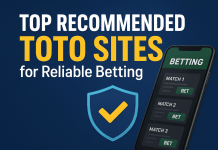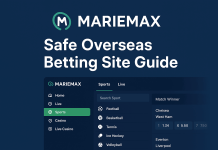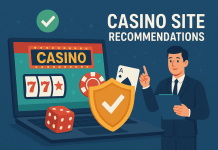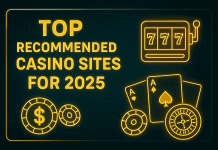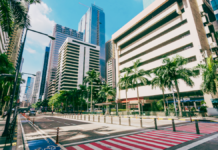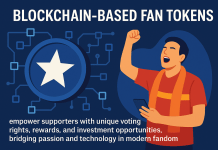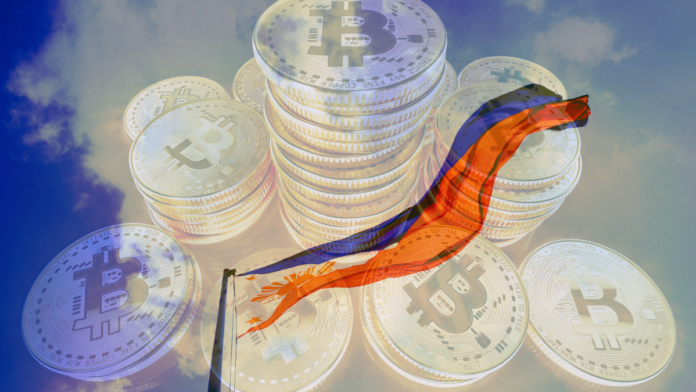If you’re looking to dive into the world of Bitcoin in the Philippines, you’ve come to the right place. Buying Bitcoin can seem intimidating, but you can start quickly and safely with the proper steps. HTC News will break down everything you need to know about how to buy Bitcoin in the Philippines.

Why Buy Bitcoin?
Before we get into the nitty-gritty of buying Bitcoin, let’s talk about why you might want to invest in it. Bitcoin is often called “digital gold” because it’s a store of value and a hedge against inflation. It’s decentralized, meaning it’s not controlled by any government or financial institution. Plus, it’s gaining mainstream acceptance, with more businesses and services accepting it as payment.
Choose a Reliable Bitcoin Wallet
Choosing and picking a reliable Bitcoin wallet to store your digital currency is the first step on how to buy Bitcoin in the Philippines. Think of it as your Bitcoin bank account. There are various types of wallets to consider:
Hardware Wallets
These are physical devices that keep your Bitcoin offline. They’re highly secure but can be a bit pricey.
Software Wallets
These are software applications you can download on your phone or computer. They’re convenient but may need to be more secure than hardware wallets.
Online Wallets
These are web-based wallets you can access from any device. They offer great convenience but come with higher security risks.
Some popular wallet options include Trezor (hardware), Electrum (software), and Blockchain.info (online).
Pick a Bitcoin Exchange
Once you have a wallet, the next step on how to buy Bitcoin in the Philippines is to choose a Bitcoin exchange. This is where you’ll buy your Bitcoin. In the Philippines, you have several reputable exchanges to choose from:
Coins.ph
One of the most popular options in the Philippines, Coins.ph allows you to buy Bitcoin directly with PHP.
PDAX
The Philippine Digital Asset Exchange (PDAX) is a local exchange regulated by the Bangko Sentral ng Pilipinas (BSP).
Binance
While it’s a global exchange, Binance offers services to Filipino users and supports PHP deposits.
Each exchange has its own pros and cons, so take some time to research which one best suits your needs.
Verify Your Identity
Most creditable exchanges will require you to verify your identity before trading. This process, known as Know Your Customer (KYC), helps prevent fraud and money laundering. You’ll typically need to give a valid ID, proof of address, and possibly a selfie for verification.
Deposit Funds
After your account is confirmed, the next step is to deposit funds. Most exchanges in the Philippines offer several options:
Bank Transfer
You can move funds from your bank account directly to the exchange. This is a standard and secure method.
E-wallets
Some exchanges accept deposits from popular e-wallets like GCash and PayMaya.
Over-the-Counter (OTC): Certain exchanges have partner outlets where you can deposit cash directly.
Buy Bitcoin
With your account funded, you’re ready to buy Bitcoin. Here’s a simple step-by-step process:
- Log in to your exchange account.
- Navigate to the trading section.
- Select Bitcoin (BTC) from the catalog of available cryptocurrencies.
- Choose the amount of PHP you want to spend or the amount of BTC you want to buy.
- Review the transaction details, including any fees.
- Confirm your purchase.
Secure Your Bitcoin
Once you’ve bought your Bitcoin, it’s crucial to secure it properly. Consider transferring your Bitcoin to a more secure hardware or software wallet if you’re using an exchange wallet. Always use strong, unique passwords, and enable two-factor authentication (2FA) for added security.
Understanding Bitcoin Fees
When buying Bitcoin, you’ll encounter a few different types of fees:
Exchange Fees
Most exchanges charge a small percentage of your transaction as a fee.
Deposit and Withdrawal Fees
Some exchanges charge fees for depositing or withdrawing funds.
Network Fees
These are fees paid to Bitcoin miners for processing your transaction on the blockchain.
Ensure you understand your chosen exchange’s fee structure to avoid surprises.
Always Be Updated on the Latest Bitcoin News
The cryptocurrency market is volatile and ever-changing. Stay updated about market trends and news to make the most of your Bitcoin investment. Follow reputable sources like CoinDesk, CoinTelegraph, and local crypto communities on social media.
Consider Dollar-Cost Averaging
If you’re nervous about investing a large sum all at once, consider a strategy called dollar-cost averaging. This involves buying a predetermined amount of Bitcoin at regular intervals, regardless of the price. It’s a great way to mitigate risk and take advantage of market fluctuations over time.
Tax Implications
In the Philippines, cryptocurrency transactions are subject to taxes. The Bureau of Internal Revenue (BIR) requires you to report your Bitcoin transactions and pay applicable taxes. It’s wise to consult with a tax expert to ensure you comply with local regulations.
Common Scams to Avoid
Unfortunately, the crypto space is rife with scams. Here are a few common ones to watch out for:
Phishing Scams
Fake websites and emails trick you into providing your log-in details.
Ponzi Schemes
Investment schemes promising high returns with little risk. If it sounds too good to be true, it probably is.
Fake Exchanges
Use reputable exchanges to avoid falling victim to counterfeit platforms.
Is It Legal to Buy Bitcoin in the Philippines?
Why else would we give you tips on how to buy Bitcoin in the Philippines if it’s illegal? Of course, it is legal to buy Bitcoin in the Philippines. The Bangko Sentral ng Pilipinas (BSP), the country’s central bank, has established clear guidelines for cryptocurrency exchanges to ensure a secure environment for crypto transactions. In fact, the BSP has recognized the potential of cryptocurrencies and has issued regulations to promote their safe and responsible use.
Here’s a quick overview of the legal landscape:
Regulation
The BSP requires all cryptocurrency exchanges in the Philippines to register and comply with regulations. These regulations were drawn to protect consumers and prevent illicit undertakings such as money laundering and fraud.
Licensing
Exchanges must obtain a Virtual Currency Exchange (VCE) license from the BSP. This ensures that the exchanges adhere to strict operational standards and security protocols.
Consumer Protection
The regulations mandate that exchanges implement robust KYC (Know Your Customer) and AML (Anti-Money Laundering) procedures. This adds an extra sheet of security for users.
Taxation
The Bureau of Internal Revenue (BIR) requires that all cryptocurrency transactions be reported and taxes be paid accordingly. This means you must keep track of your Bitcoin transactions and declare any gains or losses in your tax filings.
By following these guidelines, you can buy, sell, and trade Bitcoin in the Philippines legally and safely. Always use licensed exchanges and comply with local laws to ensure a smooth and secure cryptocurrency experience.
Your Bitcoin Journey Begins
At first, the question of how to buy Bitcoin in the Philippines may sound confusing and scary. However, buying Bitcoin in the Philippines doesn’t have to be complicated. You can safely and confidently start your Bitcoin journey by following these steps.
Bitcoin represents a new era of financial freedom and opportunity. So why wait? Start your Bitcoin adventure today and join the digital currency revolution.
read more: How Bitcoin Mining Works: A Deep Dive into the Digital Gold Rush




